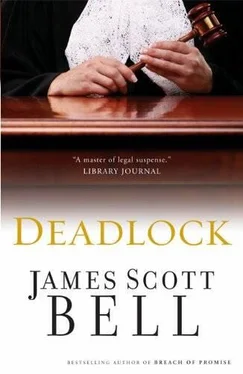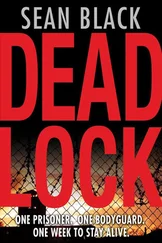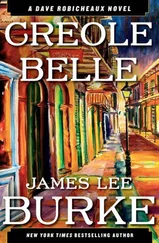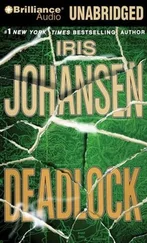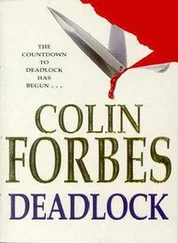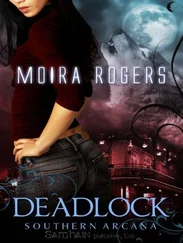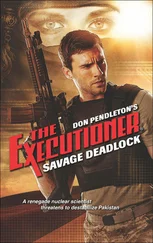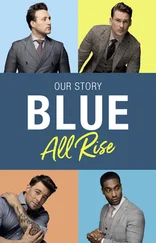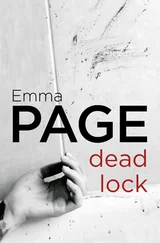“Sure would like to have a chance to talk with you afterward,” Ricks said.
“My daughter has come here to rest,” Ethel said. “I’m sure you understand.”
He was a reporter. Millie was sure of it. And then she remembered him. It was at the hospital, the day she was released. He had poked his face out of the crowd of reporters and shouted a question at her.
“Well,” Ricks said, “your daughter is a famous person. No getting around that now, is there?” He snorted a laugh. “I have an obligation to my readers, Madame Justice. I’m a gentleman of the press.”
“I appreciate that, Mr. Ricks,” Millie said. “But as I have consistently told reporters, I do not want to give any interviews at this time. If you’ll give me your card, I’ll make sure you get a copy of any official statements.”
The man made no move for a card. “I’m into exclusivity, Madame Justice. That’s my stock in trade.”
“What paper do you write for?”
The man smiled, his teeth looking like they could gnaw wood. “ The National Exposure.”
“Oh, my,” Ethel said.
“News you can use and won’t make you snooze,” Ricks said. “You read our stuff?”
“I see it in the store,” Ethel said. “You should be ashamed of yourself.”
He laughed. “Now if I was ashamed of myself, I wouldn’t be a good newspaperman, would I? After all, I’m protected by the First Amendment, isn’t that right, Justice Hollander?”
For a moment he just stared at her, then he winked. “Be seeing you,” he said. He slipped out of the row and walked toward the exit.
“What a disagreeable little man,” Ethel said.
Before Millie could answer, a young man at the front holding a guitar said, “Good morning, everyone. Please stand as we praise the Lord.”
After what seemed like an eternity of singing and announcements, Jack Holden took the pulpit for his sermon.
Millie studied him. He was dressed in a suit and tie and held a Bible. It looked as natural in his hand as a hammer in the hand of a carpenter. Millie wondered if he was still wearing those beads under his shirt.
“I have a cheery topic this morning,” Holden said. “I’d like to talk to you about death.”
The word hit Millie like a slap. In fact, a slap to the face might have been less intrusive. And then she had a terrible thought. He was preaching to her . He must have seen the book she’d been reading.
“You know what Woody Allen once said about death?” Holden continued. “He said he didn’t fear it. He just didn’t want to be there when it happened.”
A smattering of laughter rose from the congregation. Millie thought about walking out, but her mother would be mortified. No, she had to stay, like a prisoner forced to listen to the warden’s inspirational speech.
“Well, we’re all going to be there when it happens. And we have to think about that. It’s crucial that we think about it. Because as morbid as it sounds, our life is really about how we prepare for death.”
Holden, Millie noticed, was speaking without notes. He made eye contact with his audience. She couldn’t help thinking that as a lawyer he would make a great impression on the justices of the Court.
“But in today’s world, we seem to spend most of our time trying not to think about death. In a famous book from the 1970s called The Denial of Death, the author said we are so afraid of death that this denial was the central fact of our lives. Furthermore, he said, since we have no way of knowing our purpose on earth, we just have to act as though we have one.
“That’s the problem, isn’t it? People do not know where to look for the answer. So they don’t think about death. They play games, watch television shows, drink themselves into oblivion, take drugs, seek extreme experiences. Anything to keep from thinking about the reality of this thing called death.”
Holden opened his Bible and started turning pages.
“But the Bible tells us that we need to think about death, because it is going to happen to us. The psalmist says each man’s life is but a breath. And listen to what James says in chapter four: ‘Why, you do not even know what will happen tomorrow. What is your life? You are a mist that appears for a little while and then vanishes.’
“Now James may not have been the life of the party,” Holden said, “but he is telling it like it is. So, too, does the writer of Hebrews. ‘A man is destined to die once,’ it says in chapter nine, ‘and after that to face judgment.’
“What happens after death is, you’ll pardon the expression, of grave import to us now. One either believes there is life after death, or one does not. Those in the middle, whom we call agnostics, don’t feel there is enough information to make up their minds. The tombstone of an agnostic reads, ‘All dressed up and nowhere to go.’ ”
Again, the congregation laughed. Millie didn’t find the comment funny.
“The truth is, however, we all go. Where is up to us. I love the book of Ecclesiastes. It’s a book I wish everyone would read. If you want to think about death, think about what Solomon had to say. When he considered death in this world, without regard to the next, he found that all was vanity, a chasing after the wind. That word vanity, in the original language, means ‘vapor’ or ‘breath.’ And all of our striving on this earth, if there is no immortality, is vanity. A chasing after the wind.
“In our day, we think we have become sophisticated about death. A school of psychology became popularized in the works of a Swiss-born psychiatrist named Elisabeth Kübler-Ross. Some of you may have heard of her book, On Death and Dying.”
Millie bristled and felt her hands clenching. He was preaching at her! And in the most personal of terms. If she had been stripped naked she couldn’t have felt more exposed.
“Kübler-Ross and others believe that a dying patient goes through a series of stages, beginning with denial. After that comes anger and then a bargaining with the prospect of death. When that doesn’t work, depression follows and then, if the right conditions exist, acceptance. But I do not believe the human soul can ever accept death unless it is convinced that death can be overcome.”
Millie was going to leave. Right then. Slip out and deal with her mother later. But Holden brought her up short.
“You have all heard accounts of the so-called near-death experience. They’ve had TV shows about it. People report that they have died, and seen a great light, sometimes at the end of a tunnel, sometimes all around them. And it has been pure ecstasy. So it has been reported.
“But you may not have read much about the other side of the coin. For those who have almost died and reported something like a vision of hell.”
How did he know about her vision? Millie was almost trembling with anger and shock.
“We are not being wise if we do not look at death square in the face, like the Bible does. Jesus talked about death in terms of eternity. And make no mistake. When he talked about men dying without God it was a horror of immense proportions. I sort of wish that stuff wasn’t there, but I can’t close my ears to what Jesus says.
“But in the New Testament, the Greek word for dead is used mostly in connection with another word – resurrection. Yes, the Bible compels us to think about death, but it shows us that for those who are in Christ death is not a period. It is a comma.
“One of my favorite passages of Scripture is in Romans, chapter eight . ‘In all these things we are more than conquerors through him who loved us. For I am convinced that neither death nor life, neither angels nor demons, neither the present nor the future, nor any powers, neither height nor depth, nor anything else in all creation, will be able to separate us from the love of God that is in Christ Jesus our Lord.’
Читать дальше
